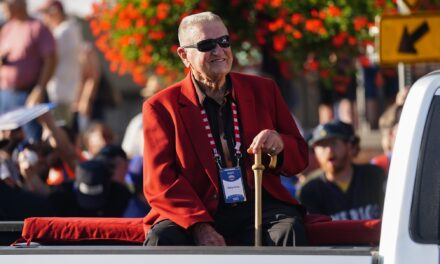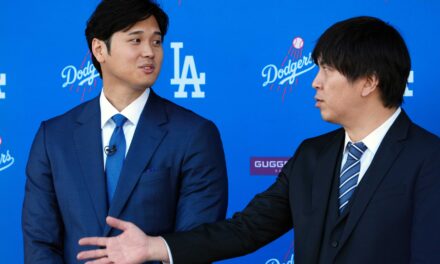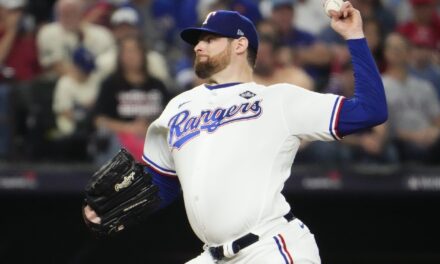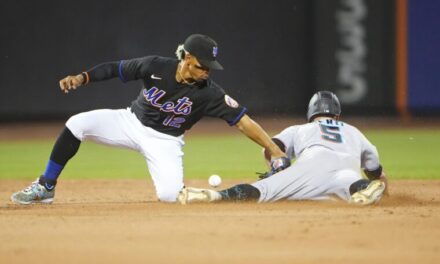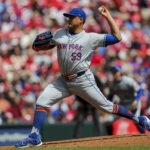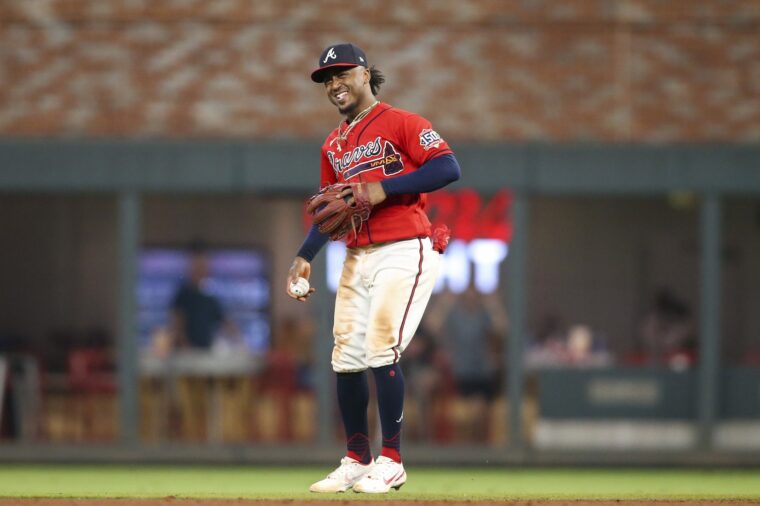
Mandatory Credit: Brett Davis-USA TODAY Sports
As Mets’ fans, we are highly aware of how the Braves marched past the guys from Flushing all the way to the World Series this season. Despite losing Ronald Acuna Jr. to a season-ending injury, and not having ace Mike Soroka all season, the Braves deftly managed the trade deadline to acquire the pieces necessary to play in October.
Braves’ general manager Alex Anthopoulos brought in Eddie Rosario and Jorge Soler (among others) to help Atlanta go 44-28 in the second half of the season, as they won their fourth consecutive division title. The Braves made another change, an internal one, in June that according to an article by Jared Diamond of The Wall Street Journal, also had an impact on their rise from below to .500 to first place. They began to employ the infield shift with greater frequency.
From Diamond’s article, the Braves were among the least shifting teams in baseball in 2019 and 2020. They decided to change their defensive approach in June of 2021, when they were performing well below expectations. Interestingly, the change did not come exclusively from the front office. Rather, the topic was discussed with the team and decided upon collaboratively.
“You can try to force it,” Anthopoulos said. “But it’s probably not a good idea.” Instead, manager Brian Snitker said, “Everybody kind of talked about their feelings on this thing.”
The Braves then became the second-most shifting team in MLB (nearly 51% of pitches) from June through the end of the season (only the Dodgers shifted more). During that time span, the Braves posted a record of 63-47. Analytics show that 25 ground balls, that would have been hits, became outs for the Braves once they employed their new strategy. While that may sound modest, those ground balls could have started rallies or driven in runs, and had an impact on wins and losses.
So how about the Mets?
The Mets used the shift extensively in 2021. Using percentage of plate appearances as the metric from Baseball Savant:
Dodgers (53.6%)
Mets (50.2%)
Astros (46.2%)
Braves (38.9%)
One of these teams is not like the rest. Simply using the shift is not the answer. Knowing when to shift and how (scouting and analytics) contribute, as does the skill of the infielders. The Braves have a talented infield of Freddie Freeman, Ozzie Albies, Dansby Swanson, and Austin Riley. Freeman and Albies are among the gold glove finalists at their positions in the National League.
A natural question to ask is, how effective are teams at achieving the objective of the infield shift-preventing runs? When infield shifting, here are the defensive runs saved by teams in the National League’s eastern division, from Fielding Bible.
Braves (32)
Phillies (9)
Mets (22)
Marlins (23)
Nationals (21)
Below are the N.L. eastern division teams and their runs saved when not in an infield shift:
Braves (0)
Phillies (-9)
Mets (7)
Marlins (0)
Nationals (-2)
Infield shifting helped the Braves more than any other team in the division. The impact for the Mets was positive, though not as significant as it was for the Braves.
Regarding the individual defensive skills of the Mets’ infielders, here is a look at their Outs Above Average (OAA):
Pete Alonso (2)
Jeff McNeil (1)
Javier Baez (at second base as a Met) (3)
Francisco Lindor (20)
Jonathan Villar (-5)
J.D. Davis (-3)
The Mets are solid defensively up the middle (with Baez at second base), but far less so at the corners (with third base being a problem defensively).
Will shifting more make the Mets a better team? Probably not, if considered in isolation. Addressing defensive gaps (such as third base) will have multiple impacts on defense, both in the shift and when traditionally positioned.
For the Braves, employing the shift with increased frequency likely contributed to their second-half success, but not nearly as much as their activity at the trading deadline.
The Mets have many significant decisions to make this offseason. Restructuring the roster (along with front office placements) remains the priority. Using the shift, not necessarily more, but perhaps more strategically, may be a final piece to the puzzle of trying to break the Braves’ run of division championships.


